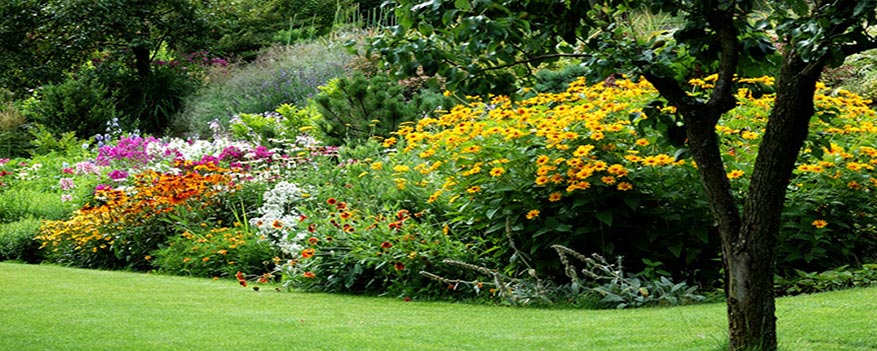
What Can I Do to Prepare My Yard for the Winter?
A number of our clients have asked this question, so much so, that it was worthy of an article.
As temperatures begin to lower here in Wisconsin so does the growth rate of much of our outside plant life, including turf. According to Paul Tukey, founding editor of People, Places and Plants magazine, executive producer of an HGTV show of the same name and the author of The Organic Lawn Care Manual, “the most important factor to remember is to mow the grass low, to about 2 inches.” Longer grass is a safe haven for mice, or voles, which will hide in the lawn and leave telltale trails of damage in the spring.” Taller grass is also a feeding ground for snow mold.
Tukey also suggests an application of compost tea just before winter to help maximize the number of microbes in the soil heading into the cold season. Backyard organics provides this treatment in the fall application, typically applied in mid to late September.
Most experts agree that turf in our part of the country requires three season maintenance programs to have a healthy lawn. For maximum payoff next spring, prepare your lawn for winter in early fall. Here are some additional suggestions:
Avoid heavy snow build up in any one particular area
Plow snow 1 to 2” above your turf
Avoid sodium based ice melters, which are not only harmful to your lawn but also your pets. Use calcium chloride instead.
Clear debris. A clear lawn allows sunlight, water, and nutrients to reach the soil and limits the amount of mold potential. A clean lawn also is a good start to avoiding mice, moles, and voles from moving in.
De-thatch. Thatch (layers of dead grass) creates a natural barrier for water and nutrients to reach your soil. (Backyard Organics provides a product in the early fall application that turns thatch into organic matter, thus enriching your soil and eliminating the labor of removing it.
Aerate. This allows water and nutrients to reach the roots and nourish the grass while reversing soil compaction.
Water. 1 to 2” per week just before the first big freeze should suffice
Sharpen your tools. This eliminates the “tearing” of grass which could make it susceptible to diseases.
Avoid heavy traffic in any particular area which can cause winter kill.
Go easy on the pruning. Pruning promotes growth and we don’t want plants growing just before the dormant season. Cut away dead wood, however, to avoid insect habitation.
Cover that plot. To prep your garden for winter, plant a nitrogen-rich cover crop such as clover that you can simply turn under come spring, or keep the weeds at bay with a burlap cover, suggests Elaine Anderson, program coordinator for the Washington State University/King County Extension Master Gardener Program.
Transplant. Now is a great time to transplant your trees, plants, and shrubs.
Mulch. Pull mulch away from trunks in an effort to avoid moles, voles and mice from feeding on them.
So, don’t hibernate just yet. Now may be the best time to take care of your yard for 2012.